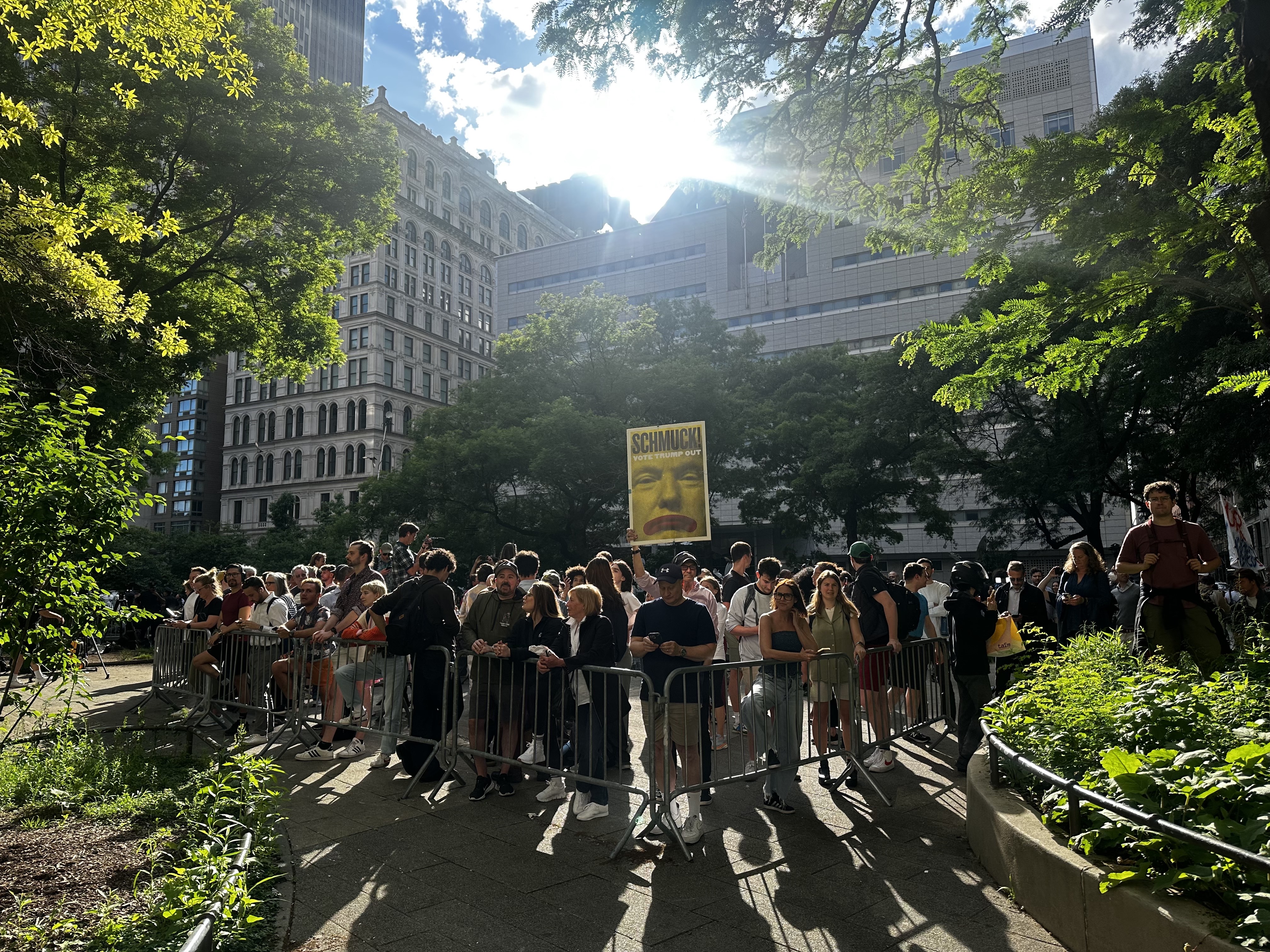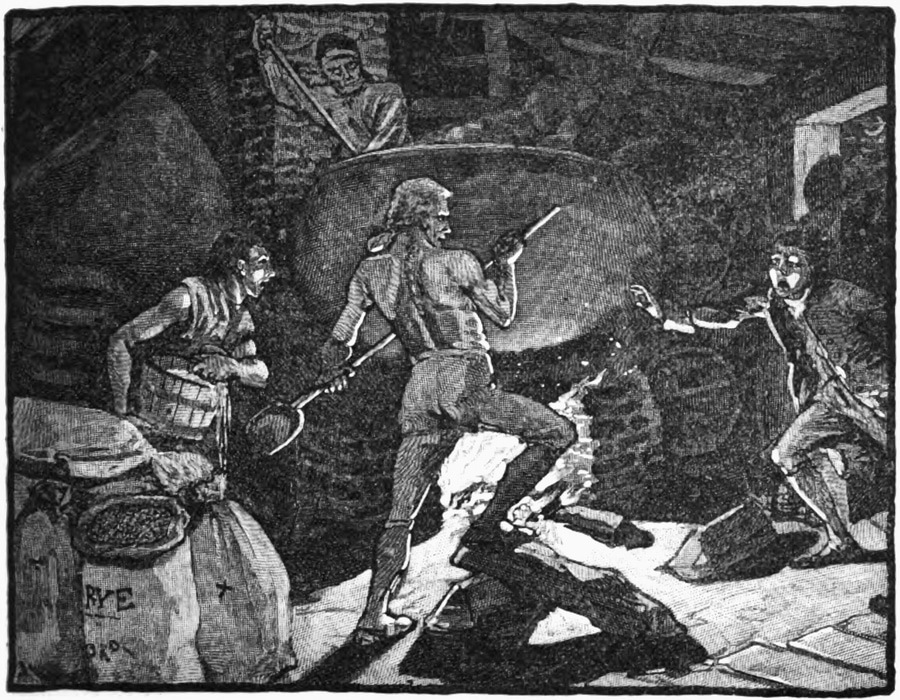Thoughts on Donald Trump’s Conviction

Published by The Lawfare Institute
in Cooperation With

Two facts overpower the day’s events.
First, a former president of the United States has been convicted in a court of law by a jury of his peers on 34 separate felony counts.
Second, a major party nominee currently seeking the presidency of the United States has been convicted in a court of law by a jury of his peers of 34 separate felony counts.
These two facts, of course, refer to the same man. But they are different. The first fact is a matter of accountability for the man’s past wrongs. But the verdict may also provide a compelling impediment to his ongoing quest for renewed power. This is a proposition which today’s verdict puts the country in a position to test for the first time.
Over the next few hours, days, and weeks, there will be countless “takes” about this man, as past and would-be president, and his convictions. There will be poll data. There will be denunciations of his prosecutors and the jurors who convicted him, and of the judge who presided over the case—many of these attacks will be reckless and ignorant, some of them dangerous. And there will be praise of all these actors too. We will hear technical claims about New York law and federal law and their interaction. We will hear claims that sound in fairness. We will hear claims that sound in politics and electoral horse race analysis. We will hear claims that sound in rage and in cries of justice and injustice.
But none of these takes will alter these two fundamental facts, facts that weren’t true at 4:20 pm this afternoon yet were true an hour later.
The first fact is important as a matter of history and accountability. It matters that the United States has had a more than two-century-long tradition of not prosecuting our presidents. And it matters that the United States has now had a president whose criminality was so relentless, so dangerous, and so unrepentant as to require the abrogation of that tradition.
It matters that the United States has a system of divided sovereignty such that the federal government’s decision not to prosecute Trump for this matter did not resolve the question of whether a District Attorney in Manhattan might choose to put a variant of the same fact pattern before 12 residents of the city.
As someone who personally sat through five weeks of this case, I also want to submit that it matters that Trump had to personally sit through the same five weeks of testimony as I did. That he had to spend every day in a dingy courtroom of no particular glamor. That he could not leave. That he had to listen to other people talk about his conduct in their own words. That he could not respond when he wanted to. That he had to rise when everyone else had to rise because a judge whom he hated was walking in or because a jury whom he was not allowed to talk about publicly was filing out. That he had to sit there while his conduct was evaluated, and that the decision-makers in that evaluation—both on the law and on the criminality of his conduct—was not him but other people whom he did not and could not control.
It matters that Trump will now face sentencing for his conduct, currently scheduled for July 11. It matters that between now and then, he will have to meet with a court probation officer who will prepare a presentence report about him. It matters that this process will be, within a reasonable margin of error, the same degrading process that every other convicted felon goes through. It matters that Trump’s fate is no longer entirely his own to control, that it is—in some meaningful sense—subject to the decision of the State of New York.
And yet, while accountability and history matter—and matter a great deal—the prospective fact arising out of today’s conviction is actually far more important than the retroactive accountability. One of the reasons we prosecute crimes, after all, is to disable future criminality. And when you’re talking about prosecuting criminality in former presidents who also seek to be future presidents, there’s an inherent democracy protective function to the criminal process. That is, you’re trying to use retroactive accountability to prevent future democratic abuses.
For a variety of reasons, some of them better than others, prosecutors are loathe to say this forthrightly, as it smacks of interference in the political and electoral system. But while Bragg may thus be coy about saying that one of the benefits of this prosecution is that it may frustrate to some degree Trump’s efforts to regain power, I am not shy about saying this on his behalf.
But that, in turn, raises an important question, the answer to which will only now, in the wake of this conviction, begin to come into focus: Does a criminal conviction of a past president, in fact, serve any significant democracy protective function in a prospective sense as that person seeks the presidency anew or is it just so much noise? Does Trump’s being convicted of 34 felonies make it any less likely that he will be elected president five months from now? Put another way, does the criminal law serve any meaningful role in shielding American democracy from its own populist instincts? Does it actually matter in a prospective sense?
We all once accepted as an article of faith that, of course, it matters. And there is at least some polling data that suggests a conviction will significantly change the presidential race. As polling analyst Nathaniel Rakich summarizes the data at 538:
At first glance, there's some evidence from polls that this conviction will meaningfully erode Trump's support. An April survey from CNN/SSRS found that, while 76 percent of Trump supporters said they would support Trump regardless, 24 percent said they "might reconsider" their support for him if he was convicted. And a May poll from Emerson College found that 25 percent of voters said a guilty verdict in New York would make them less likely to vote for Trump.
A few pollsters have also asked two versions of the standard "who will you vote for?" question in recent weeks: one straightforward one, and one that asked respondents who they would vote for if Trump was convicted in the New York case. On average, Trump went from leading by 1 percentage point in these polls without considering the conviction to trailing by 6 points with it.
Count me at least a little bit skeptical. Polling people about whom they support is hard enough. Polling people about whom they think they will support if some event happens sometime in the future is even harder. More fundamentally, Trump’s resilience in the polls and in his party’s leadership in the face of two impeachments, his attempted forcible retention of power, his serial abuses of power, and his repeated electoral setbacks make the answer to the question of whether a conviction will matter decidedly non-obvious.
As of this writing, Trump leads President Biden by 1.7 points in the 538 polling average and by 0.9 percent in the RealClearPolitics average. The race, according to all metrics, has been remarkably stable over a long period of time. And a lot of analysts don’t especially expect it to change much now. Even Rakich, in the article quoted above, goes on to suggest that the impact of a conviction on the race may be both minimal and ephemeral. Indeed, he writes, “Democrats would be wise to not get too excited about these numbers.”
But the prospective aspect of this conviction has other dimensions too. What would it mean for this country to have a criminal as a president? America has had its share of bad men before as leaders. We have elected leaders who—no doubt—have committed crimes. We have also had men commit crimes while in the office of the presidency. We have never, however, elected a person to the presidency in the face of a criminal conviction, let alone 34 of them, and we have never elected as president a person with an extant criminal sentence.
It is, to be sure, by no means certain that Trump will have a sentence outstanding at the time of his election—if elected he is—or his inauguration. But it is just as clearly not certain that he will not be on probation or, at least theoretically, serving time in jail.
There is no law guiding us on this question. No rule, no law, no provision of the Constitution says that we cannot put a felon in charge of our nuclear codes. Yet every instinct that restrains us from hiring mid-level national security officials who trigger minor polygraph discrepancies would seem to flash red lights about putting all of our national secrets in the hands of a man convicted of falsifying his company’s records by way of covering up payments to inconvenient women to keep them quiet.
And yet there is a powerful current in this country, perhaps a winning electoral coalition, that seems not to care. We’re about to find out exactly how much of that coalition is really committed to its apathy about Trump’s misconduct.
One of the striking things about this case, having taken the time to watch the whole thing, is just how wrong a lot of the criticism that Bragg received for it since he brought it more than a year ago has turned out to be.
We were told by a great many pundits that the case was weak. This was false. The evidence was voluminous. It was powerfully corroborative. It was diverse. The case was quite strong.
We were also told by pundits that the case was trivial—merely about marital infidelity, passed over by federal prosecutors, old and stale and, critically and unforgivably, not about Jan. 6 and thus irrelevant to Trump’s greatest crimes against democracy.
Triviality is a matter of opinion, of course. But I confess that as I watched it, I did not find the case trivial. I found it nauseating, a grouping of some of the least attractive and sleaziest human beings I have ever imagined in proximity to the levers of power. And critically, these were people actively and consciously engaged in an effort to corrupt an election. I came away from the trial thinking it was actually important that Trump had to answer for this conduct, whether he was convicted of it or not.
We were also told the case was legally flawed. That proposition remains tested only at the district court level. So I’ll reserve final judgment on it until we hear from the various appeals courts that are going to consider Trump’s appeals. That said, don’t bet on the hyper-confident predictions of appellate vindication for Trump, mostly advanced by people who have spent no time with the statutes in question and their histories. Justice Juan Merchan is an experienced judge. He handled this case like a professional. He wasn’t at all the toady for the prosecution that Trump has made him out to be. He was, in fact, very fair. I would actually be surprised to see the case not hold up on appeal.
The bottom line is that this was a more righteous case than a lot of people gave it credit for. And it has played an important role in a broader effort by multiple jurisdictions to use the criminal law as a democracy-protective instrument against Trump. It has put us in a position, five months before the election, in which we now get to find out whether the criminal law instrument is a meaningful one in the highest-stakes democracy protection efforts, either on its own or in combination with political forces.
That’s no small thing for a case that never got the respect it warranted. The question now is whether we care.


.jpg?sfvrsn=8253205e_5)


